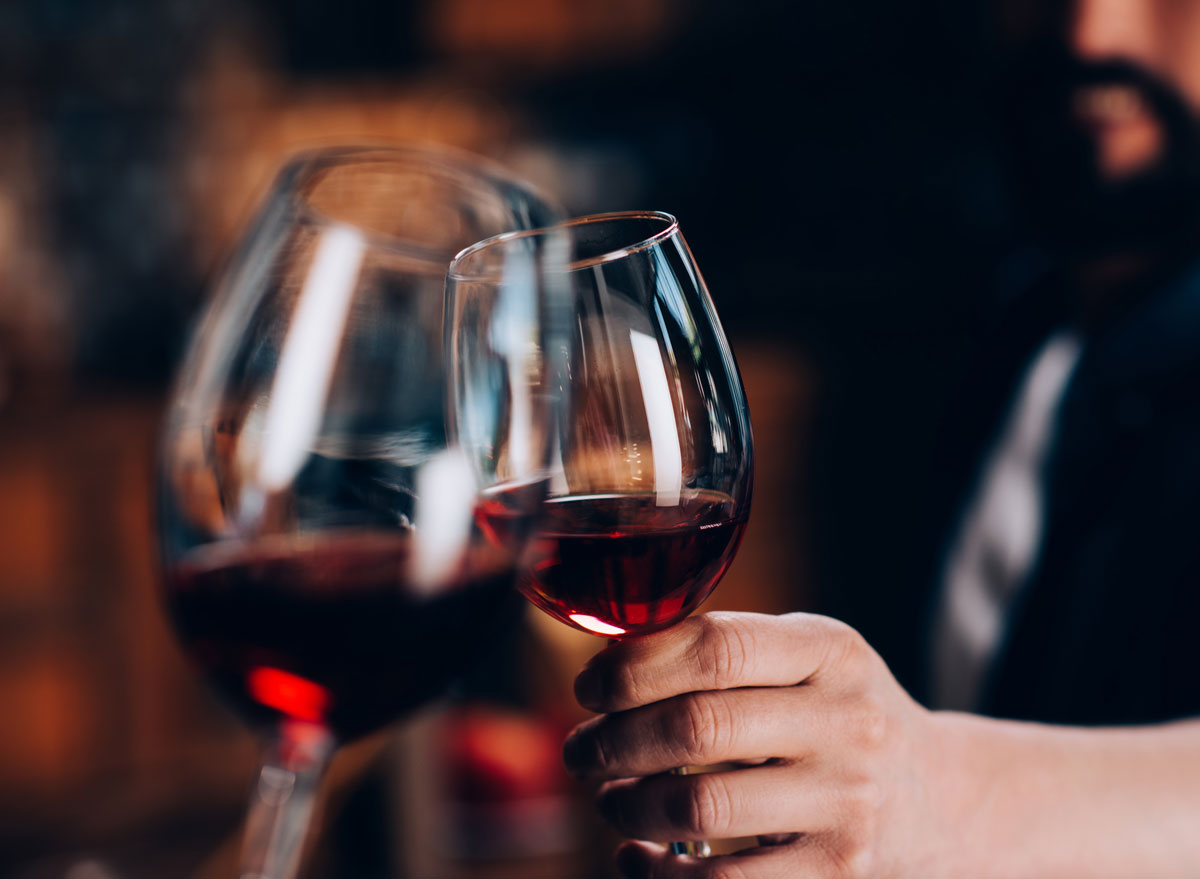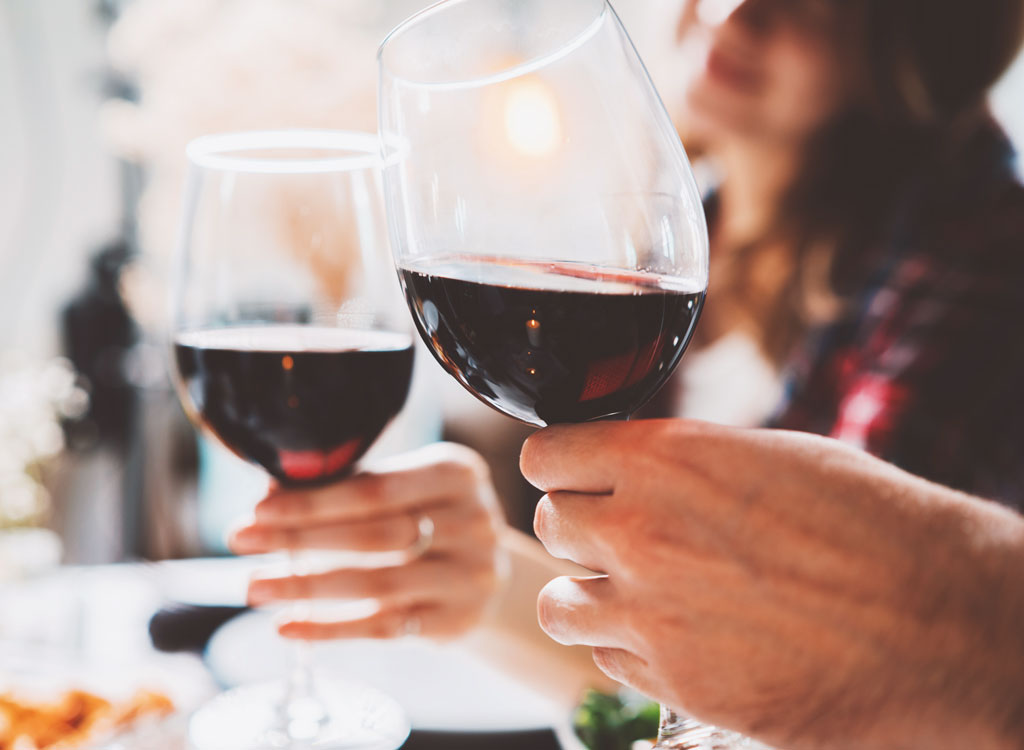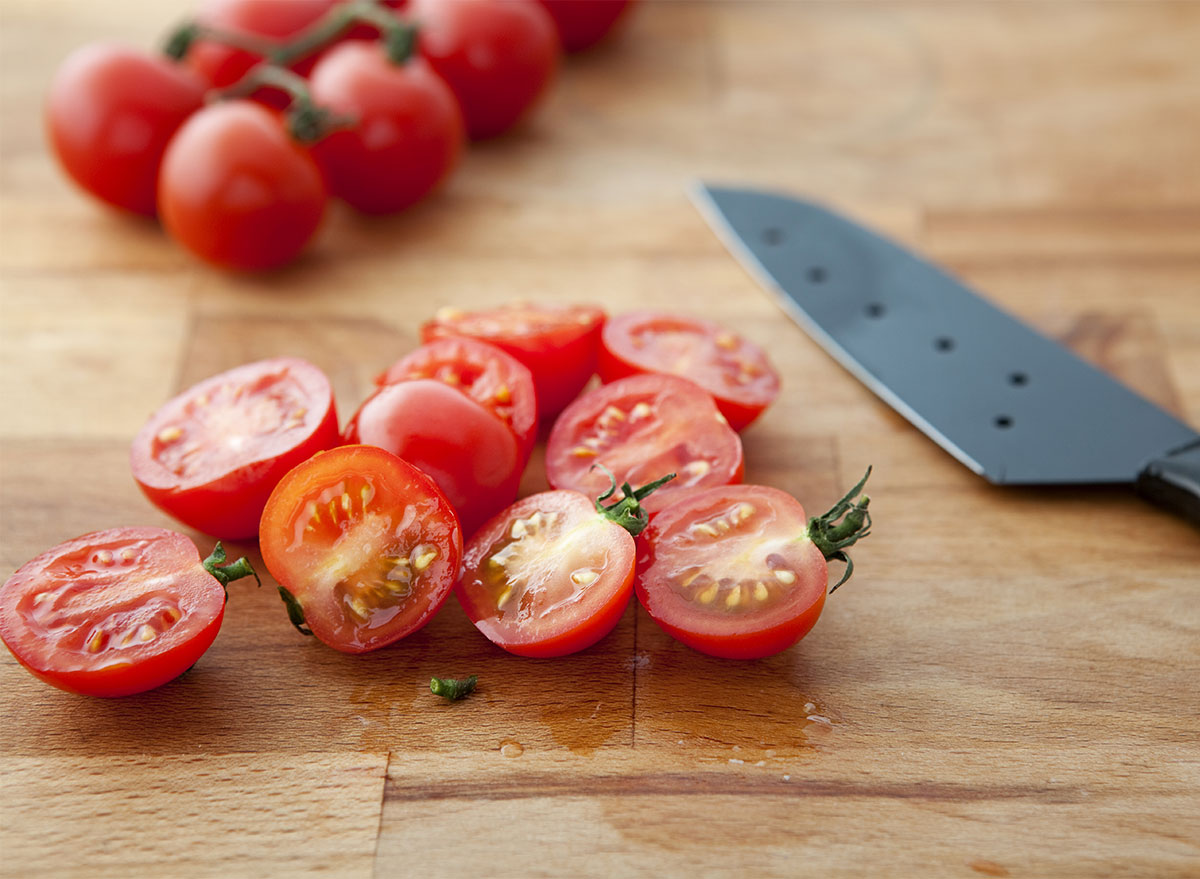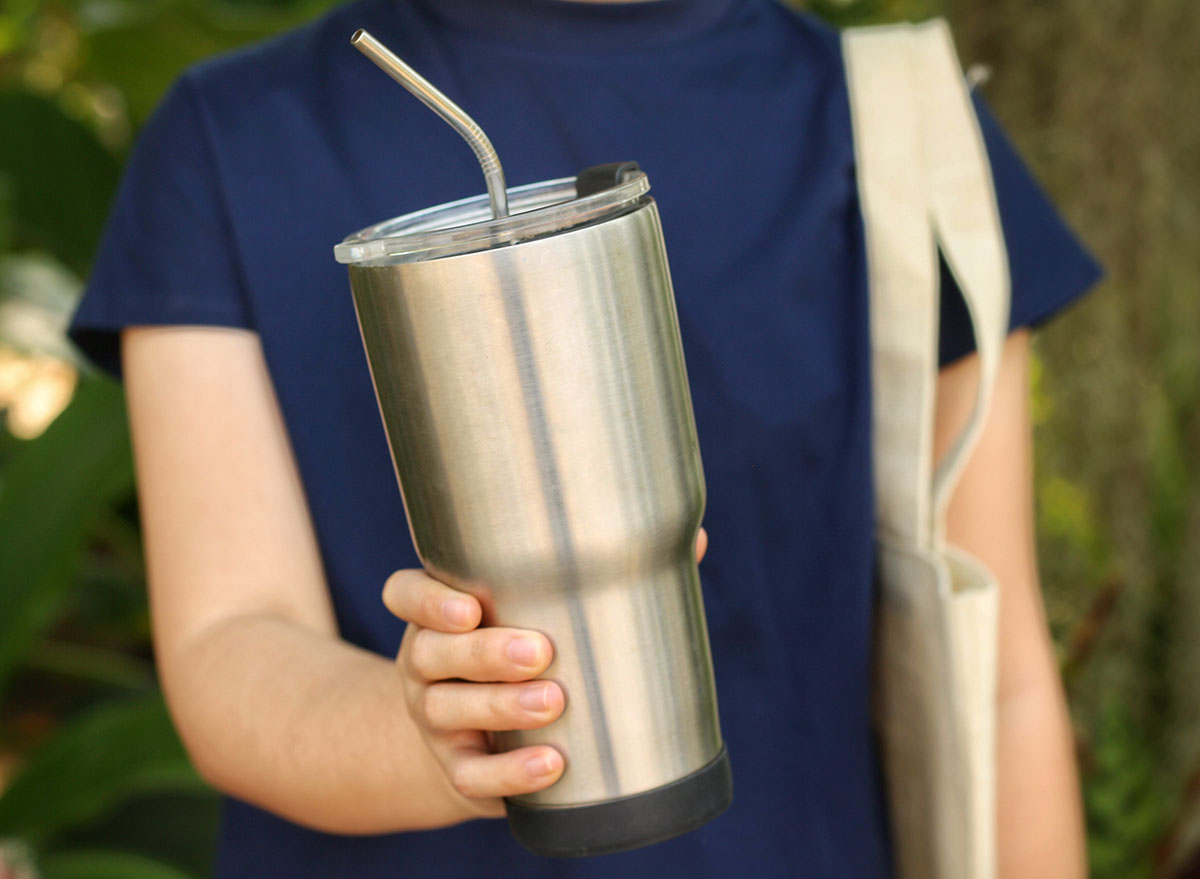Dinner Habits That Help You Lose Weight

Dinner is the big finale of any day's eating and, in a lot of ways, it's the meal that defines us. The people we share dinner with are the people who matter most to us; the places we eat are the places that we most relate to. Dinner puts your whole day's food experience into perspective.
And for most Americans, dinner is where the majority of our protein is found. An egg squeezed between two English muffin halves or a few shavings of turkey stuffed into a sandwich isn't the same as a nice pot roast, a juicy burger, or a chicken dinner. In fact, the average American gets three times as much protein at dinner as he or she does at breakfast.
But that's a mistake. Eating protein throughout the day, rather than as a centerpiece for dinner, is better for keeping your muscles strong, according to a 2014 study in The Journal of Nutrition. The researchers found that a moderate amount of protein three times a day was more effective at stimulating muscle protein synthesis (i.e., the process of building lean, fat-burning muscle tissue) than relying on the evening meal for the majority of your meat.
What that means for you is that dinner shouldn't look like a hunk of meat with some starch on the side—your best approach is to keep your plate balanced more toward the vegetable arena. For more concrete tips, we put together this list of healthy dinner habits that will help you lose weight. Read on, and for more on healthy eating, don't miss 15 Underrated Weight Loss Tips That Actually Work.
Don't Eat If You're Not Hungry

Ever get home late from the office, feeling pretty bedraggled and ready for bed, but you force yourself to eat dinner anyway? Don't do that. If you're not in the mood for your final meal, it's better to simply hit the hay and enjoy a nice breakfast the next day, according to a report from the Journal of the Association for Consumer Research. In a study of forty-five undergrads, researchers found that people who were moderately hungry before a meal tended to have lower blood glucose levels after eating than those who weren't particularly hungry before they ate.
Take the Scenic Route

If you've just sped through a stressful day at work, don't speed home. Stop at the playground and kick a ball with some kids, or swing by an art gallery, or meet a friend for tea. Prep yourself for dinner by finding a way to blow off the tensions of the day. Failing to let go of your work stress could lead to chronically elevated cortisol levels, causing sleep and immunity problems, blood-sugar abnormalities, and weight gain. If you feel like you tend to overeat when you're stressed, it might be worth reading about these 9 Ways to Stop Stress Eating, According to Experts.
Pester Your Waiter

Chefs often add fat and salt to make meals taste better—but these ingredients aren't necessarily something they advertise on the menu. Since you've already taken such care to choose a dinner that sounds healthy, take the extra step, and ask your server if there is any cream or butter in your dish. If there is, ask for your veggies and meats to be cooked dry and have sauces come on the side so you control how much ends up on your plate. No matter what kind of restaurant you're dining at, you can save up to 1,000 calories at each meal by making this simple request.
Order Grown-up Drinks

A frozen margarita may sound refreshing, but most restaurants and bars have ditched their fresh-fruit recipes in favor of viscous syrups made mostly from high-fructose corn syrup and thickening agents. As a general rule, the more garnishes a drink has hanging from its rim, the worse it is for your waistline. Instead, choose a cocktail made with club soda and lime, or stick with nutrient-packed red wine.
Related: This is How Much Wine is Safe to Drink Per Day
Eat "Wet" Carbs

That doesn't mean soaking your potatoes in gravy. A wet carb is one that naturally has a lot of water in it—stuff like cucumbers, tomatoes, salad greens, and asparagus. Dry carbs, like bread, French fries, and pasta, require your body to give up water in order to digest them. Wet carbs, on the other hand, allow you to stay adequately hydrated overnight. That helps your body process the fiber you've eaten during the day and ensures you'll continue to draw nourishment from the day's food intake.
Drink and Drink Again

Have a big tall glass of water before you go to bed, and set another on your nightstand.
Make Your Bed(time)

According to Wake Forest researchers, dieters who sleep five hours or less put on two and a half times more belly fat, while those who sleep more than eight hours pack on only slightly less than that. But when you have a regular bedtime and stick to it, you set yourself up for day-in, day-out weight loss. Shoot for an average of six to seven hours of sleep per night—the optimal amount for weight control. For a better night's rest, don't miss these 13 Food Hacks That Will Help You Sleep Better Tonight.








